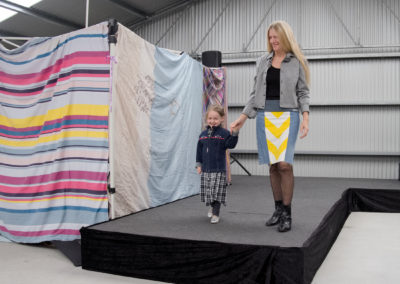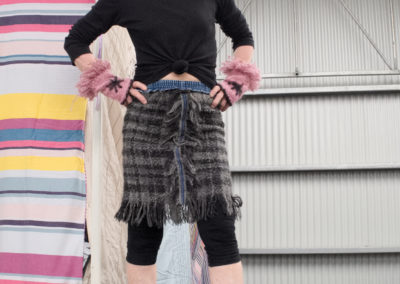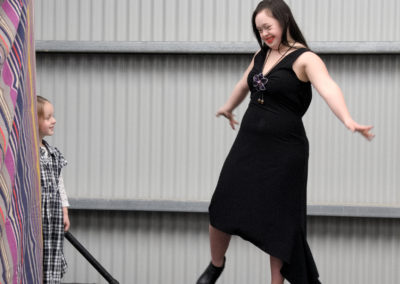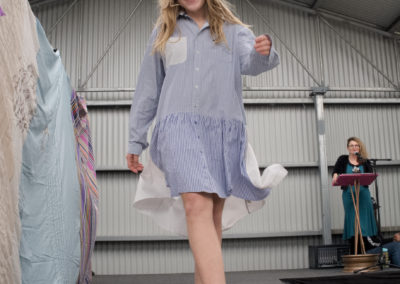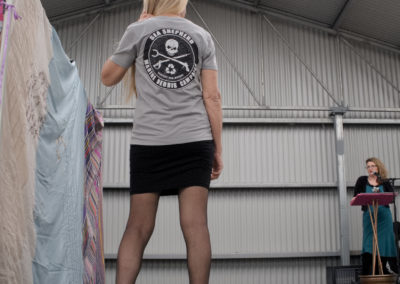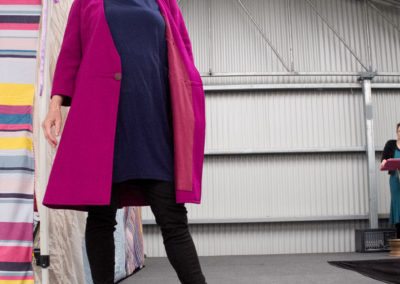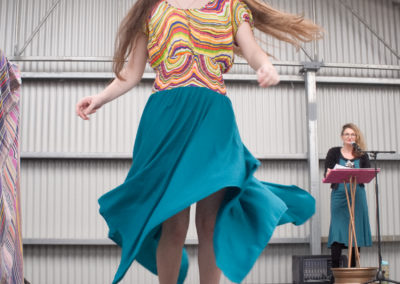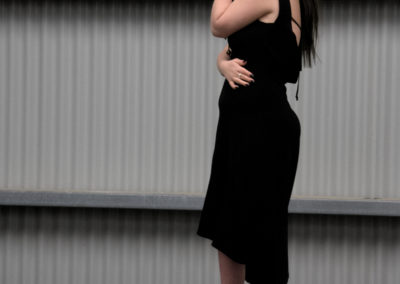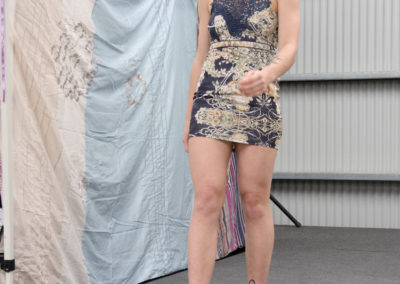Green Skills held a Slow Fashion Festival in June 2019 at Fossicker’s Tip Shed in Albany to showcase sustainable fashion around the Great Southern region.
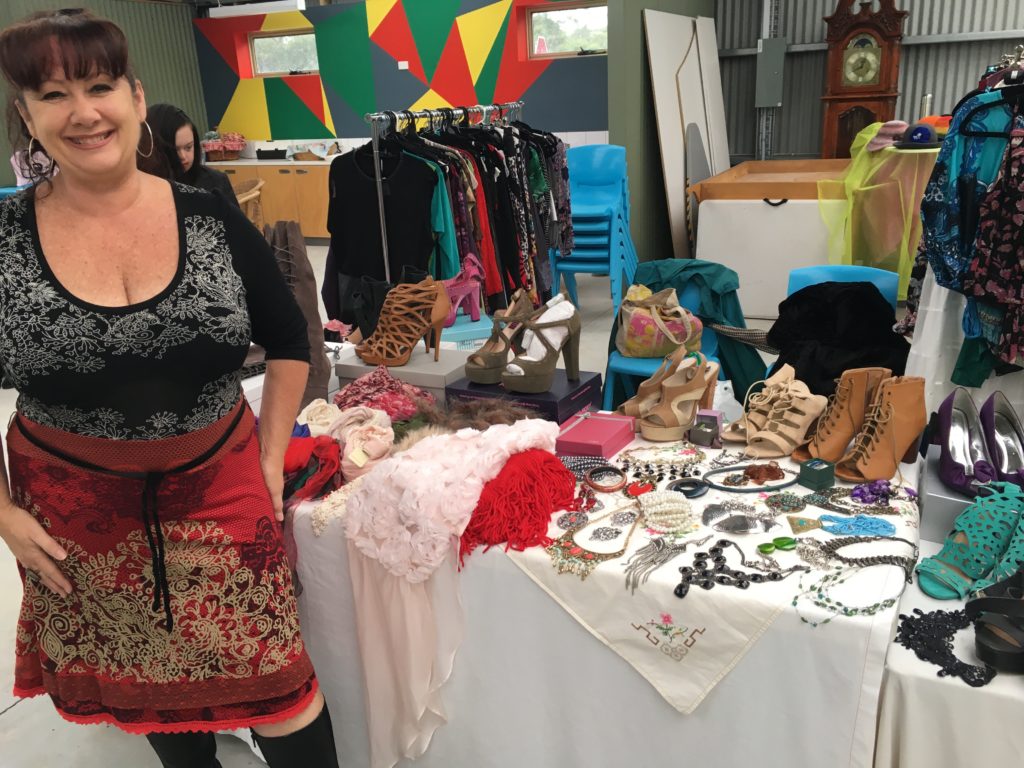

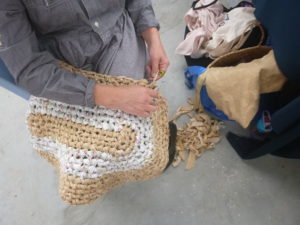
What is Slow Fashion? Slow fashion, as opposed to fast fashion, is fashion that causes less harm to people and the environment. It could be expensive, handstitched, bespoke, organic garments; or a bargain unique op shop find. Our festival included market stalls from local businesses who are upcycling coffee pods to make jewellery, plaiting rag rugs, upcycling fabric into new garments, creating jewellery from wooden offcuts, reselling secondhand clothes, hand-felted hats, vintage wear, and information about our recently launched Repair Cafe Albany.
The global fashion industry has an impact on the environment through raw materials (cotton cultivation is one of the most pesticide and water intensive industries in the world), fibre processing chemicals and dyes polluting soil & water, landfill (the average Aussie throws out 23kg of textiles to landfill every year) and microfibres (most WA beaches are polluted with microscopic synthetic fibres). There is also a humanitarian impact as many clothing factories employ child or female workers in unsafe conditions for minimal pay in order to produce our cheap chainstore garments. You just can’t produce a new t-shirt for $3 (grow the fibres, process them into material, transport it, create the garment, and ship it around the world) without someone else paying the cost behind the scenes. Look for the hashtag #whomademyclothes to find out more.
What can you do about it? Jane Milburn, author of Slow Clothing, says ‘buy once, buy well’. Listen to her podcast here. If you can’t afford to buy ethical clothing, look for secondhand gear in op shops or online swap groups. Don’t buy new synthetic items. Keep the synthetic textiles you already have in circulation, but wash them as little as possible and consider buying a filter bag for your washing machine to decrease the microfibre shedding into the waste water (this usually ends up in oceans, hence microfibres washing up on our beaches).
You can also host a clothes swap to stop your unwanted clothes from going to landfill and get something new to you at the same time. Find out how here. Green Skills hosted a clothes swap as part of the Slow Fashion Festival and many garments exchanged hands. We did have a system with tokens, to try to make sure we didn’t end up with extra clothes at the end of the event, but there were a pile of left-overs. These will be used for future workshops.
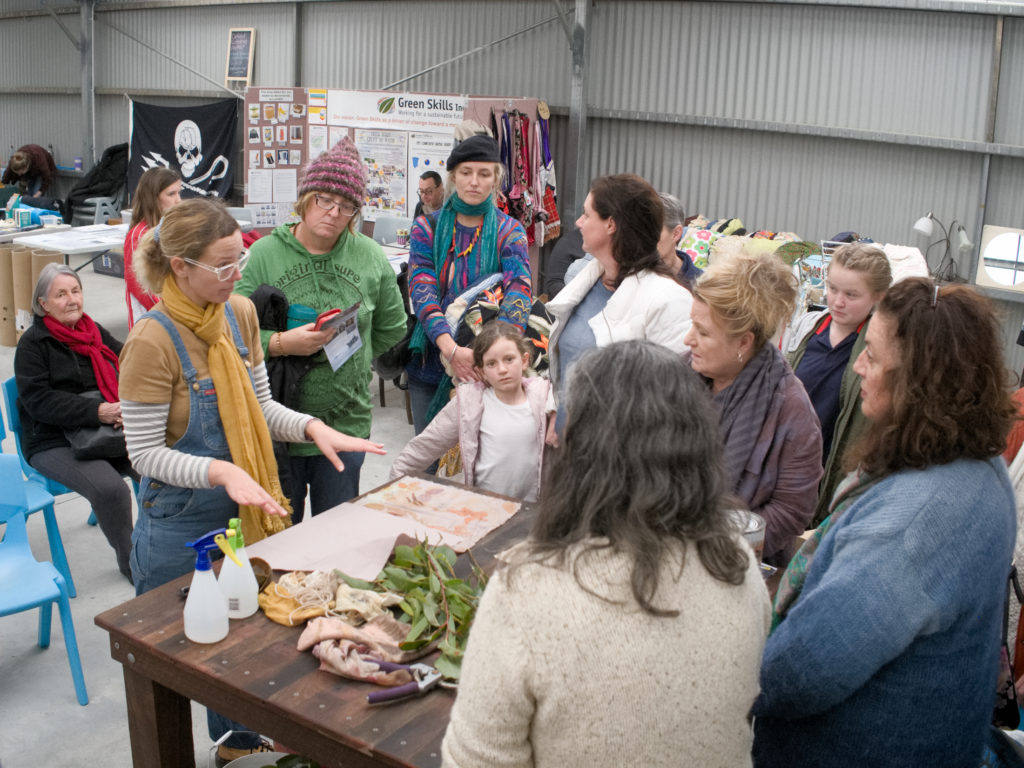
OLYMPUS DIGITAL CAMERA
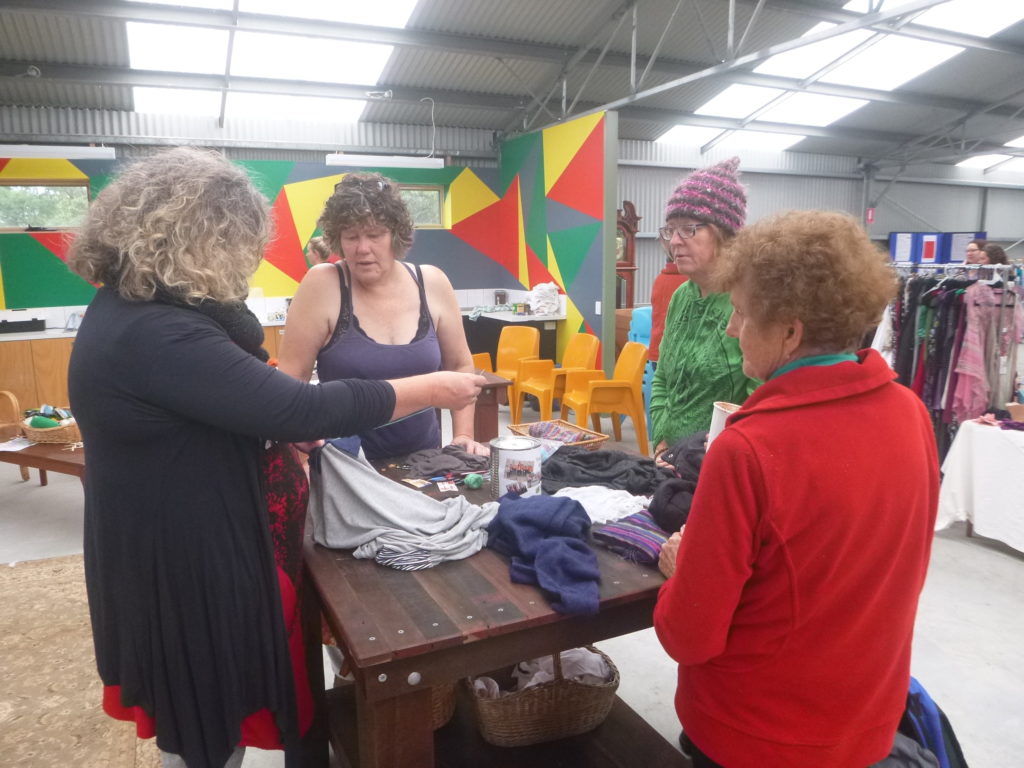
Two workshops ran at the event; darning knitted jumpers and socks, and easy hand-dying garments with natural materials. Check out the Permadoll or Green Skills Facebook pages for more workshops.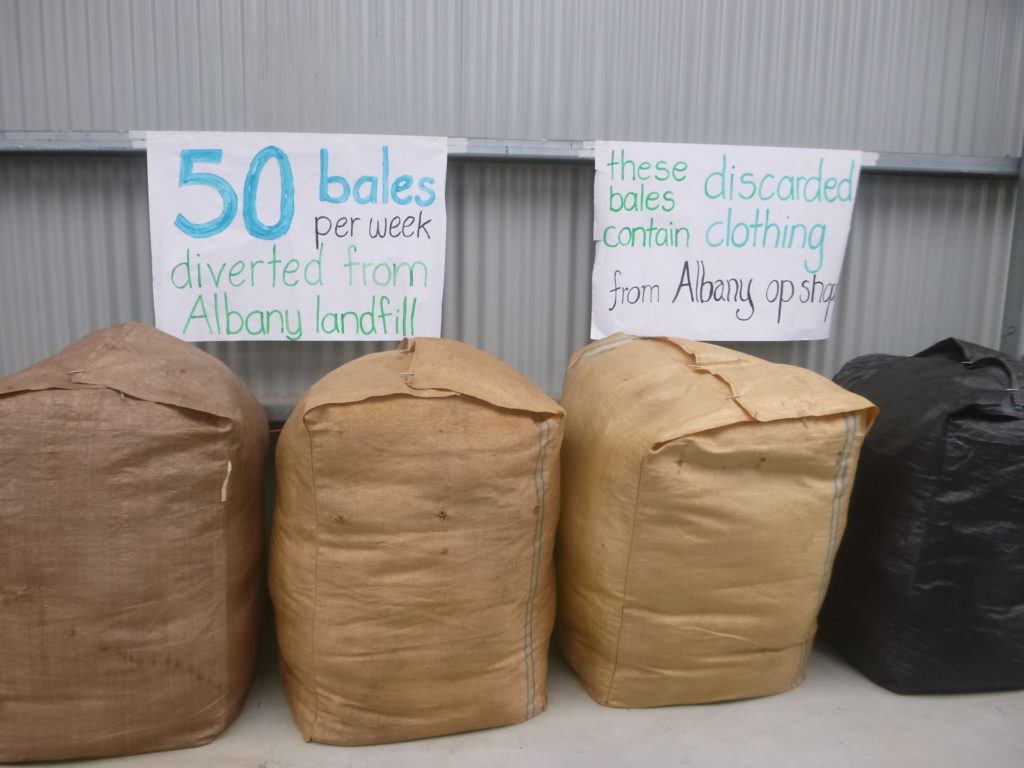
Albany folk might be surprised to see the volume of clothing rescued from our local op shops. This work is done by a local couple, Max and Marianne Chester, who attended our event in time to see some of the discarded clothing being worn on the catwalk. They have been collecting quality clothing and textiles that was on the op shop floor, but needed to be moved on in order to fit new stock. This doesn’t even include clothing that is too torn or dirty to offer for sale in the first place. The clothing is packed into wool bale bags and transported to Perth, where it is sent around Australia or the world to places of need. Max currently collects fifty wool bales worth of textiles per week, just from Albany. This was previously going into our landfill.
The most lively part of this event was the fashion parade. Catherine Kinsella from Style Genie coordinated our lovely volunteer models, and stallholders generously provided some garments, as well as discarded clothing pulled out of the wool bales (AKA ‘The Wool Bale Range’). The fashion parade ran twice during the event, and Bob Symons and the team from ACE Camera Club captured the moments for us. Thanks to our models and all the other event volunteers who made this day wonderful.
Next step: if you are want to learn more, check out these free online courses: Fashion & Sustainability with the London College of Fashion, Fashion’s Future with Fashion Revolution or Who Made My Clothes by the University of Exeter.
Green Skills Denmark has also run several projects keeping textiles out of landfill, including the recent Sew Cool! Making a Difference: Workshops and Markets.
The Slow Fashion Festival 2019 was supported by the Waste Authority of WA and the City of Albany.


